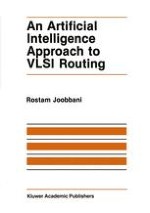1986 | OriginalPaper | Chapter
Knowledge-Based Expert Systems
Author : Rostam Joobbani
Published in: An Artificial Intelligence Approach to VLSI Routing
Publisher: Springer US
Included in: Professional Book Archive
Activate our intelligent search to find suitable subject content or patents.
Select sections of text to find matching patents with Artificial Intelligence. powered by
Select sections of text to find additional relevant content using AI-assisted search. powered by
The need and desire to transform computers from machines that perform laborious, tedious and repetitive calculations to systems that can perform more intelligent tasks akin to human beings has been the single goal of the artificial intelligence (Al) community. With recent advances in the field of artificial intelligence this long awaited dream is becoming a reality. This success is due to what has become known as the knowledge-based expert systems technique. A characteristic of these systems is massive amount of knowledge in a specific domain which enables them to imitate the human problem solving process. Knowledge-based expert systems are able to perform tasks which are labeled as intelligent tasks when performed by human beings. More specifically, they are able to interpret data, monitor a system, diagnose a condition, plan an action, consult, reason, and explain their reasoning. These characteristics are the motivation for transforming expert systems from a few academic projects in the 1970’s to the explosive commercial market in the 1980’s. The importance of knowledge-based expert systems can be measured in several ways: the widespread application of these systems to various domains, a few in the 1970’s compared to 100s of applications in the 1980’s; the number of startup companies marketing knowledge-based expert systems and tools related to the development of these systems; the number of dollars spent by various governments and companies to achieve superiority and state of the art status in this field [Hayes-Roth 84].
